A feed of recent articles relating to Behavioral Economics from The Daily Climate.
7 May 2024.
Plastic pollution treaty talks yield mixed results for Arctic Indigenous communities – 
Despite global talks aiming to tackle plastic pollution, Arctic Indigenous communities return home to worsening plastic impacts without commitments to reduce plastic production.
Sonam Lama Hyolmo reports for Mongabay.
In short:
- The recent global treaty talks in Ottawa lacked firm commitments to curb plastic production, leaving Arctic Indigenous communities disheartened.
- Plastics and petrochemicals collect in the Arctic, causing health and environmental damage while climate change exacerbates these issues.
- Oil industries and some nations emphasize recycling over production cuts, which experts argue won't fully address the problem.
Key quote:
“The Biden administration is moving forward with a massive oil and gas project that is a climate disaster waiting to happen while refusing to listen to the voices of my constituents and community.”
— Rosemary Ahtuangaruak, Iñupiaq scholar and leader from the Native village of Nuiqsut.
Why this matters:
The Arctic, melting faster than other regions, is a "sink" for plastic pollution from around the globe, drastically affecting the health and culture of Indigenous people. Read more: Ending toxic threats to Alaska from plastics and petrochemicals.
7 May 2024.
Illinois faces challenges in addressing coal ash contamination – 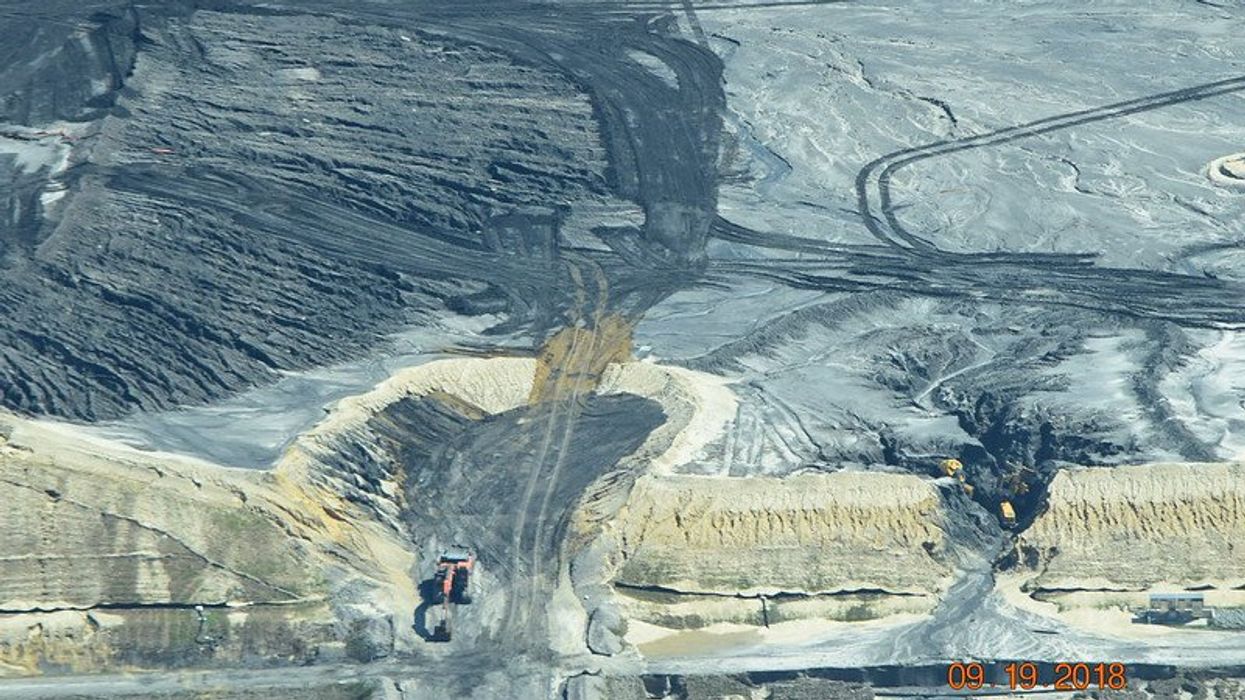
Despite Illinois passing a law five years ago to manage coal ash contamination, progress has stalled, leaving environmental advocates concerned.
Juanpablo Ramirez-Franco reports for Grist.
In short:
- In 2019, Illinois passed a law to regulate coal ash and required plant operators to submit plans to clean up or shut down.
- Despite finalized rules, permits for the coal ash pits in Waukegan have yet to be approved, delaying remediation.
- Federal rules have intensified scrutiny of coal ash, aiming to reduce its environmental impact and safeguard communities.
Key quote:
“When it comes to the implementation of these rules, it’s 2024 and we don’t have permits yet. And I don’t think anyone was expecting that.”
— Celeste Flores, co-chair of Clean Power Lake County
Why this matters:
Coal ash contains hazardous substances that can leach into groundwater, posing serious health risks. The prolonged delay in issuing permits for cleanup leaves communities exposed to potential pollution, heightening the urgency for regulatory action. Read more: Former coal plant near Pittsburgh is poisoning groundwater.
7 May 2024.
New pipelines spotlight flawed safety oversight – 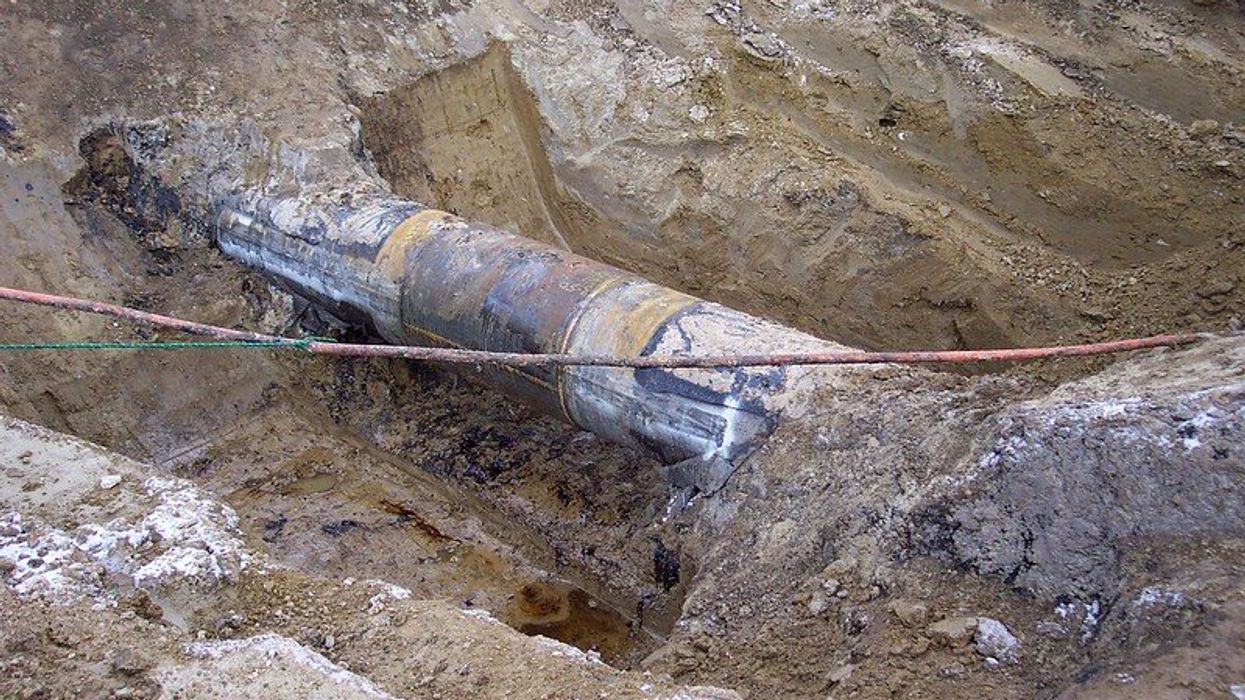
A growing network of pipelines faces scrutiny as inadequate regulatory oversight leaves safety in the hands of companies, risking both public and environmental safety.
Mike Soraghan reports for Politico.
In short:
- Despite inspectors flagging unstable construction conditions, the Revolution ethane pipeline continued until a landslide caused an explosion in Pennsylvania in 2018.
- Federal oversight agencies rely heavily on company-funded private inspectors, whose warnings are often disregarded or downplayed.
- Expansion in oil, gas, and carbon dioxide pipelines continues with insufficient regulatory resources to ensure proper safety standards.
Key quote:
"No industry is going to police itself very well. We need an independent regulator to be the one that does that."
— Bill Caram, executive director of the Pipeline Safety Trust
Why this matters:
The pipeline industry's self-regulation risks health and environmental safety, as insufficient oversight can lead to explosions, leaks, and toxic emissions. Read more: How Native tribes, hell-raisers and lawyers have combined to battle pipeline projects.
7 May 2024.
Production cap is crucial to global treaty on plastic pollution, study suggests – 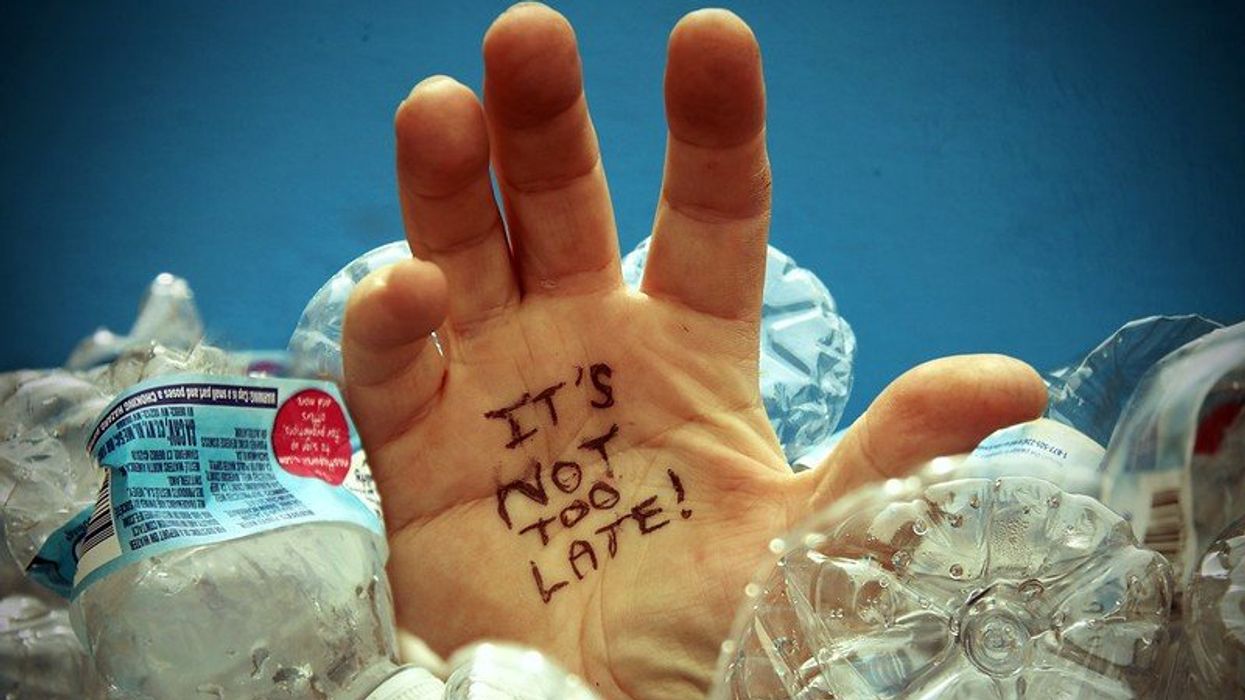
Future models on plastic pollution suggest limiting the world's annual plastic production is necessary to mitigate its environmental impact.
Costas Velis writes for The Conversation.
In short:
- An upcoming international treaty aims to curb plastic pollution, with Rwanda and Peru proposing a 40% global production cut target by 2040.
- Plastic production needs to drop by 47% compared to 2016 levels to mitigate its harmful environmental effects, but even this ambitious target leaves significant pollution.
- Effective solutions require drastic lifestyle changes, shifting consumption habits and better waste management, particularly in underdeveloped regions.
Why this matters:
Tackling plastic pollution demands global cooperation and significant lifestyle changes. To achieve health and environmental goals, it's crucial to prioritize waste prevention and sustainable consumption. Read more: “Plastic will overwhelm us:” Scientists say health should be the core of global plastic treaty.
7 May 2024.
The Biden administration's mixed record on environmental justice – 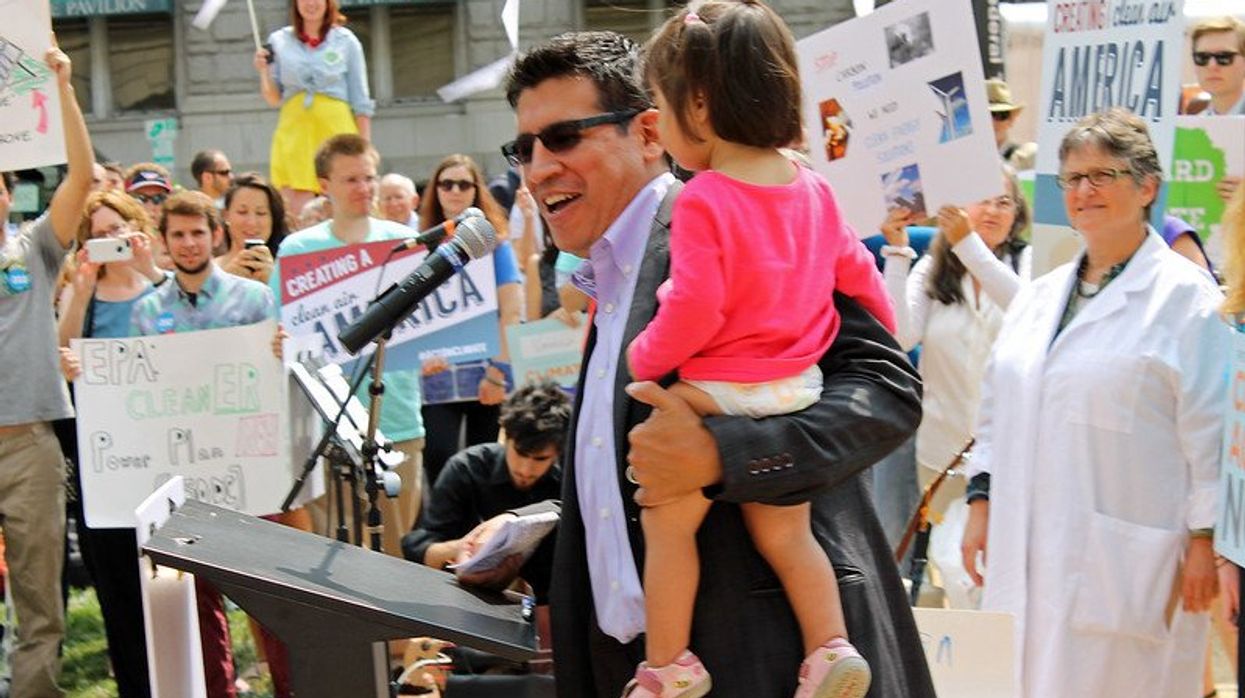
In an interview with High Country News, Mark Magaña discusses the strides made by the America the Beautiful for All coalition in advancing environmental justice and conservation efforts, while emphasizing the need for continued progress.
Erin X. Wong reports for High Country News.
- Biden's 2021 Executive Order pushed for environmental justice through the 30×30 plan and Justice40 Initiative.
- The America the Beautiful for All coalition, representing over 250 organizations, recently shared their policy agenda assessing progress on these initiatives.
- Mark Magaña, a founding member, believes funding distribution could still improve, and oil and gas infrastructure decisions hinder environmental justice goals.
Key quote:
"I would grade them high on their work being able to push through with funding. I would grade them low when it comes to their policy decisions to support oil and gas infrastructure at the existential moment that we’re in."
— Mark Magaña, CEO of GreenLatinos
Why this matters:
The coalition's efforts and Magaña's insights reflect the importance of strong environmental policies in tackling climate change and ensuring marginalized communities directly benefit from federal initiatives. Read more: A Rhode Island city gets serious about climate justice.
7 May 2024.
Natural gas study draws criticism over industry influence – 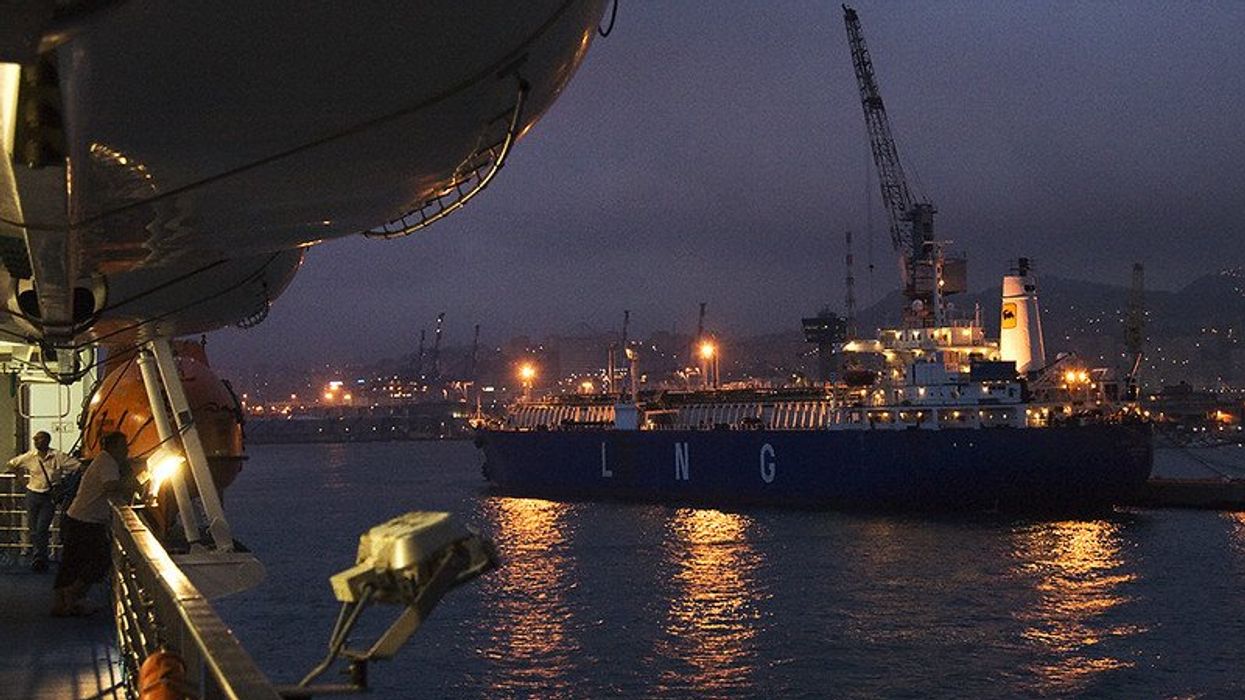
A recent report led by former U.S. Energy Secretary Ernest Moniz and funded by the natural gas industry, has faced backlash for downplaying the climate impact of natural gas.
Phil McKenna reports for Inside Climate News.
In short:
- The report was funded by the natural gas industry and is said to favor LNG despite climate concerns.
- A congressional investigation revealed that oil and gas companies have been downplaying the climate impact of natural gas.
- Some scientists argue the climate impact of natural gas is as bad as or worse than coal.
Key quote:
"The facts presented then and subsequent research from RMI and peers have confirmed that leaks of methane, the main ingredient in natural gas, even at small amounts, make it as bad as or worse than coal for the climate and not necessarily the cleaner alternative it was once thought to be."
— Amory Lovins, cofounder and former chief scientist for the Rocky Mountain Institute
Why this matters:
Understanding the industry's influence on reports like this one is crucial to ensure policies are based on objective science. Read more: EPA’s “scientific integrity” program lacks teeth, group alleges.
7 May 2024.
Regenerative agriculture shows potential for British Columbia drought resilience – 
A Swiss-born farmer in British Columbia demonstrates how regenerative agricultural practices can boost resilience to extreme drought conditions that increasingly threaten regional food security.
Matt Simmons reports for The Narwhal.
In short:
- Farmers in Western Canada are turning to regenerative agriculture to combat severe drought conditions, utilizing techniques that enhance soil health and water retention.
- These sustainable practices, such as minimal tillage and no chemical fertilizers, have proven essential in maintaining productivity during extreme weather.
- Efforts are supported by provincial initiatives, including funding for water storage systems, to aid farmers in adapting to changing climate conditions.
Key quote:
"If I treat the land right, it will feed me better. Healthy soil, healthy plants, healthy animals, healthy people. Simple."
— Eugen Wittwer, farmer
Why this matters:
As climate change accelerates, sustainable agricultural practices that preserve soil moisture and biodiversity are crucial for securing the future of food production. Addressing drought through regenerative farming not only secures food production but also builds resilience against climate change impacts. Read more: The global food system is failing small-scale farmers — here’s how to fix it.
7 May 2024.
Flooding in Brazil kills dozens and displaces thousands – 
Torrential rainstorms have struck Brazil’s Rio Grande do Sul, leading to catastrophic flooding, dozens of deaths, and massive displacement.
Lauren Herdman reports for The Guardian.
In short:
- Rio Grande do Sul experienced its worst flooding in 80 years, with rainfalls between 20-40 inches.
- The storms caused a small hydroelectric dam to partially collapse, sending a large wave through the surrounding areas.
- Climate experts link the devastation to global heating and the El Niño weather pattern.
Why this matters:
Extreme weather events like these highlight the devastating impacts of climate change and El Niño, leaving communities vulnerable and underscoring the urgency for global action on climate resilience and disaster management. Read more: Nowhere to go in New Bern: Climate catastrophe spurs migrants in US South.
7 May 2024.
A new climate fund aims to aid developing countries – 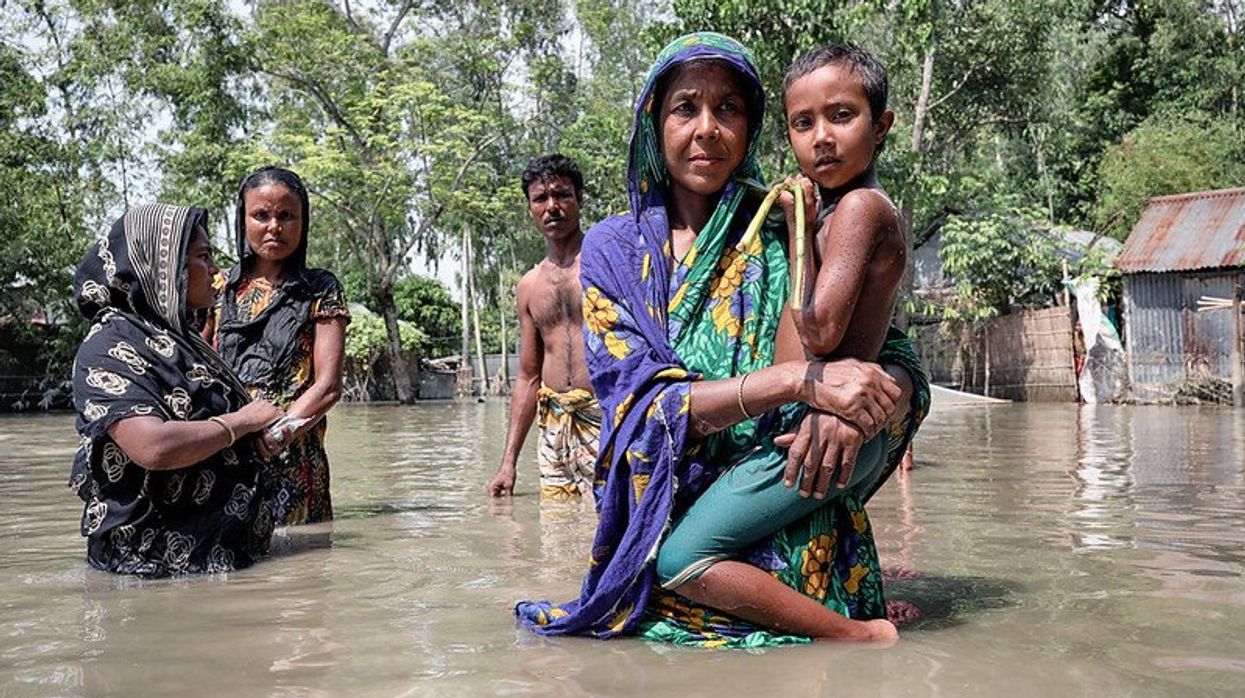
The new UN Loss and Damage Fund aims to be a game-changer in climate finance by providing quick and direct relief to regions affected by climate disasters like floods, droughts, and heatwaves.
Bob Berwyn reports for Inside Climate News.
In short:
- The new climate fund board will include 14 members from developing countries and 12 from developed nations, with the World Bank acting as its temporary host.
- Concerns persist regarding the World Bank's history and potential influence, though progress has been made toward meeting UNFCCC conditions.
- With no clear funding goal set, the fund is expected to raise substantial amounts and has received pledges totaling $661 million so far.
Key quote:
“If you don’t have a vision of a trillion dollar fund, if you create a fund which is just channeling a couple of millions, sorry, it’s a disrespectful waste of time.”
— Harjeet Singh, Fossil Fuel Non-Proliferation Treaty Initiative
Why this matters:
The fund represents a pivotal shift toward addressing climate damage in developing nations, which have contributed the least to climate change but face disproportionate consequences. Read more: Mourning family and climate change in the age of loss and damage.
7 May 2024.
Tesla scales back on building electric vehicle charging stations – 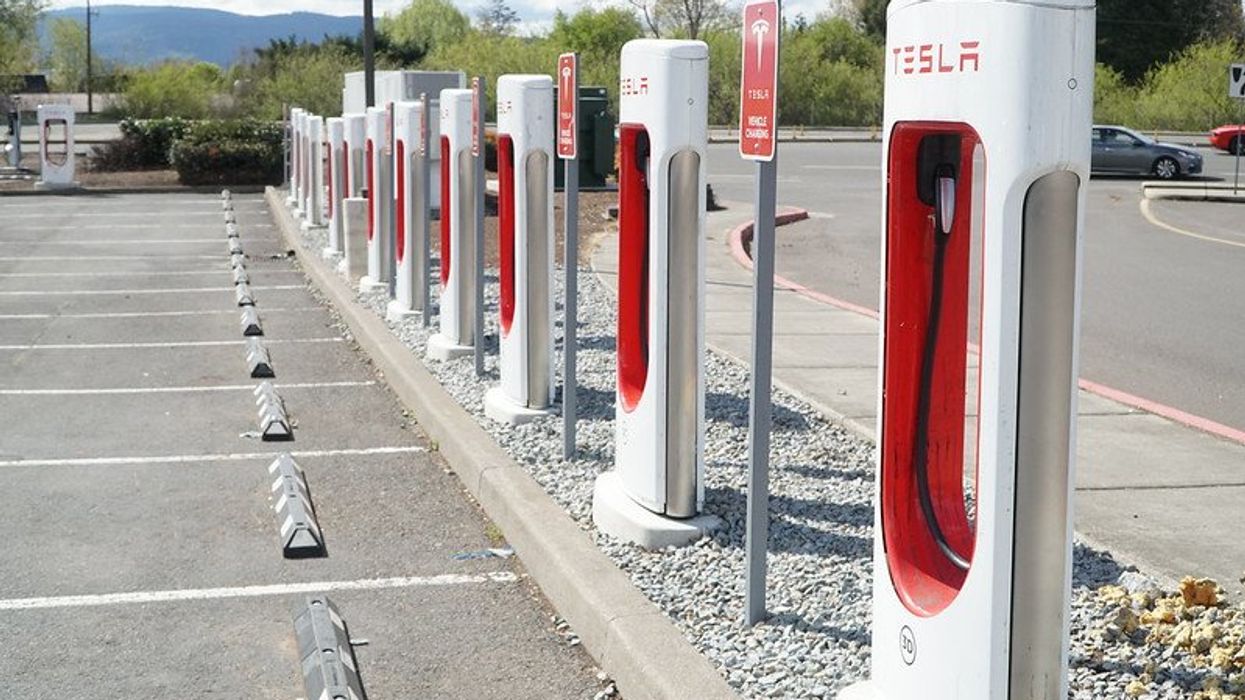
Tesla, led by Elon Musk, has decided to reduce its focus on expanding the electric vehicle charging network in the United States, leaving other companies to step up and meet the growing demand for public chargers.
Jack Ewing and Ivan Penn report for The New York Times.
In short:
- Tesla laid off 500 employees responsible for installing charging stations and scaled back on new station investments, creating uncertainty about future charging infrastructure.
- This shift places the burden on other companies, sparking doubts about their ability to keep up with the rising demand for electric vehicle chargers.
- Despite the setbacks, government subsidies and private investments are fueling an increase in the number of fast chargers nationwide.
Key quote:
“If Tesla is no longer bidding on these things, the agencies handing them out will go to other operators. There are a lot of different participants.”
— Badar Khan, the chief executive of EVgo
Why this matters:
Reliable charging infrastructure is key to the widespread adoption of electric vehicles, directly impacting the transition to cleaner transportation and achieving emission reduction targets. Read more: The role of electric vehicles in the push for environmental justice.
7 May 2024.
How the world wastes an astonishing amount of food, in three charts – 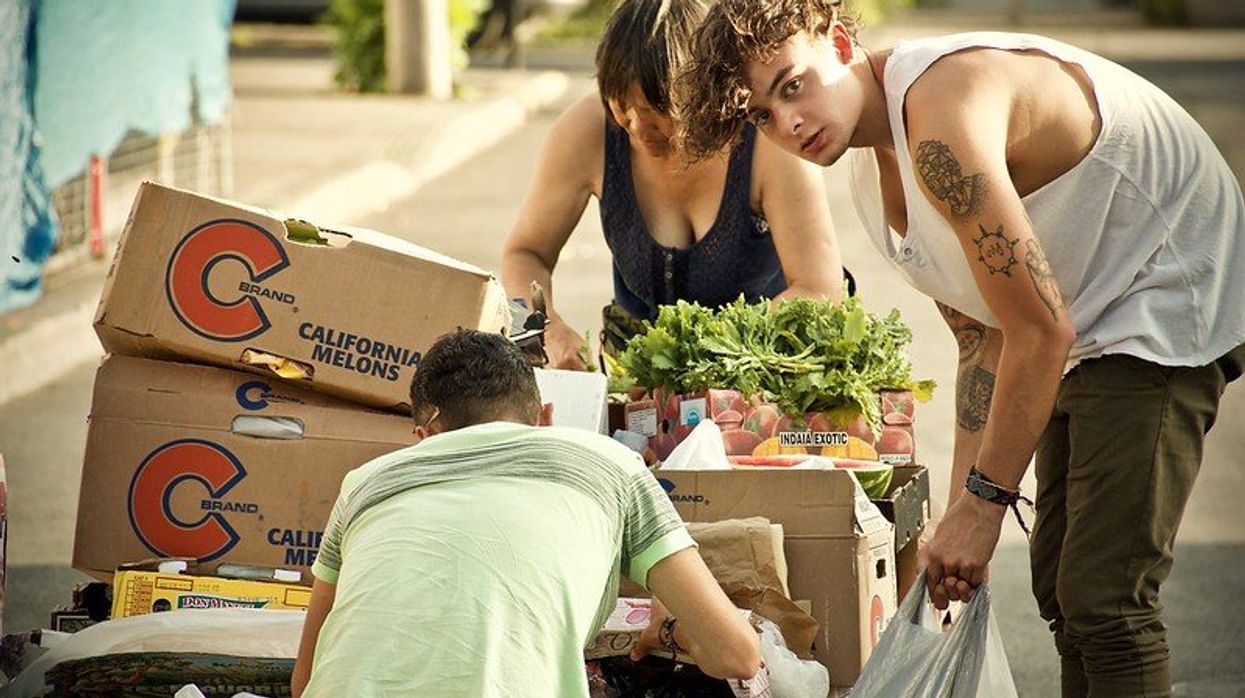
A recent UN report highlights how over a trillion dollars' worth of food is wasted annually, exacerbating climate change and food insecurity globally.
In short:
- The UN's 2024 Food Waste Index found that more than 780 million people were hungry in 2022, despite vast amounts of food being wasted.
- Food waste contributes up to 10% of global greenhouse gas emissions, worsening climate change.
- Solutions to food waste require coordinated efforts from governments, businesses, and individuals alike.
Key quote:
Food waste reduction is "an opportunity to reduce costs and to tackle some of the biggest environmental and social issues of our time: fighting climate change and addressing food insecurity."
— Report authors
Why this matters:
Food waste not only worsens global hunger but also significantly impacts the environment, making it crucial to address this issue to reduce greenhouse gas emissions and ensure equitable food distribution. Read more: It is time to respect the planet’s boundaries—and overhaul how we eat and waste food—if we want to feed our rising population.
7 May 2024.
Climate activists convicted in court despite urgency of climate change – 
Two environmental activists were convicted in a Nanaimo court for civil disobedience, with the judge ruling that the climate crisis does not justify breaking the law.
Peter Fairley reports for The Tyee.
In short:
- The activists presented a necessity defense, arguing that climate change justifies their actions, but the judge disagreed.
- The judge acknowledged climate change as an existential threat but said it didn't meet the standard of imminent danger required to excuse illegal acts.
- Despite the conviction, activists see progress, as the trial marked the first time climate activists presented expert testimony for a necessity defense.
Key quote:
“I’ve no doubt on the evidence that climate change constitutes an existential threat to life in Canada and everywhere else in the world.”
— Judge Ronald Lamperson, Provincial Court Judge
Why this matters:
The case highlights the ongoing debate over the appropriate response to climate change with this court ruling that the peril of climate change was not sufficiently imminent and unavoidable to justify the activism. Read more: Youth v. Montana — Young adults speak up.
6 May 2024.
US oil and gas sector pours big money into GOP politics – 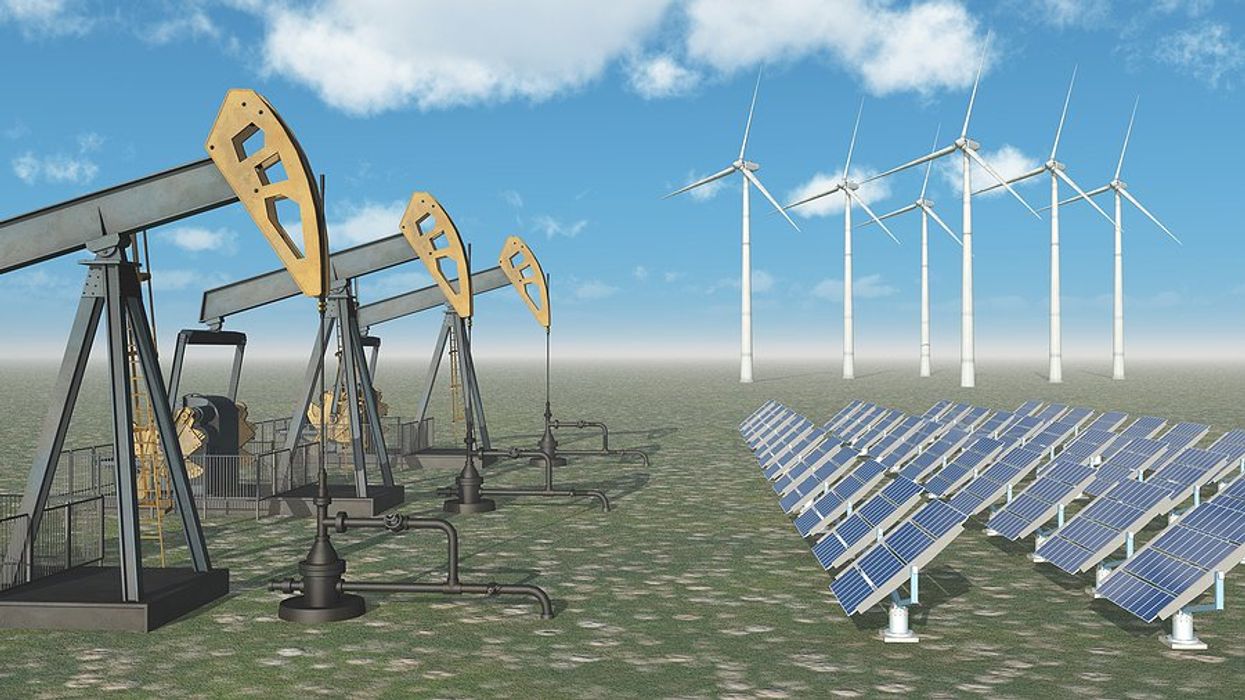
The oil and gas industry is significantly increasing its campaign contributions to Republicans like August Pfluger, a Texas Congressman, despite booming under President Biden.
Marcus Baram reports for Capital & Main.
In short:
- August Pfluger, a relatively unknown Republican, is the largest recipient of oil and gas campaign donations in the 2024 election cycle, receiving over $573,000.
- The fossil fuel industry, favoring GOP candidates who support their interests, has contributed over seven times more to Republicans than to Democrats in this cycle.
- While oil production is reaching new heights, the industry continues to criticize Biden’s environmental policies, claiming they're a threat to fossil fuel profitability.
Key quote:
“Despite the fact that oil is doing incredibly well under President Biden, the industry and its allies have continued to press the misleading talking point that Biden is engaged in war on oil and gas."
— Alan Zibel, Public Citizen analyst
Why this matters:
The oil and gas industry's significant financial backing of the GOP highlights the sector's influence on U.S. energy policies, which could affect climate change mitigation and the transition to cleaner energy sources. Read more: Brace yourself for more attention — and attacks — on climate change and the environment.
6 May 2024.
Oil companies pursue offshore drilling, touting lower emissions – 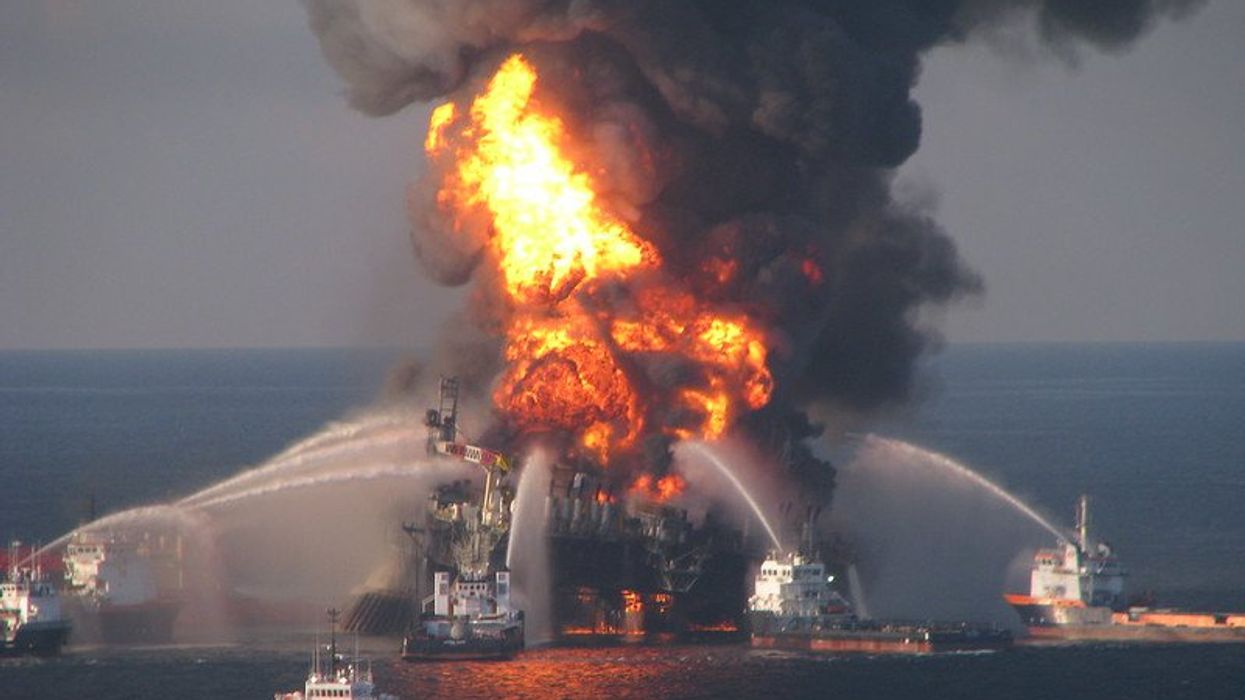
Offshore drilling companies like Shell are increasing deepwater oil and gas extraction in the Gulf of Mexico, claiming it is a cleaner alternative than onshore operations due to reduced greenhouse gas emissions.
Ivan Penn reports for The New York Times.
In short:
- Oil companies argue that deepwater drilling is crucial for global energy needs and has a lower carbon footprint than onshore drilling.
- The Gulf of Mexico has experienced rising oil production, reversing the decline after the 2010 Deepwater Horizon spill.
- Environmentalists are concerned about the industry's pivot back to fossil fuels, urging a faster shift to renewable energy.
Key quote:
“We’re not talking about stopping oil production today. But no matter how you look at it, there’s a really dire need to accelerate this shift to clean energy.”
— Brettny Hardy, a senior lawyer in the Oceans Program at Earthjustice
Why this matters:
As critical planetary tipping points loom large, a continued focus on fossil fuel extraction threatens progress toward climate goals. Read more: We don’t have time for another fossil fuel bridge.
6 May 2024.
Reimagining plastic usage to combat pollution – 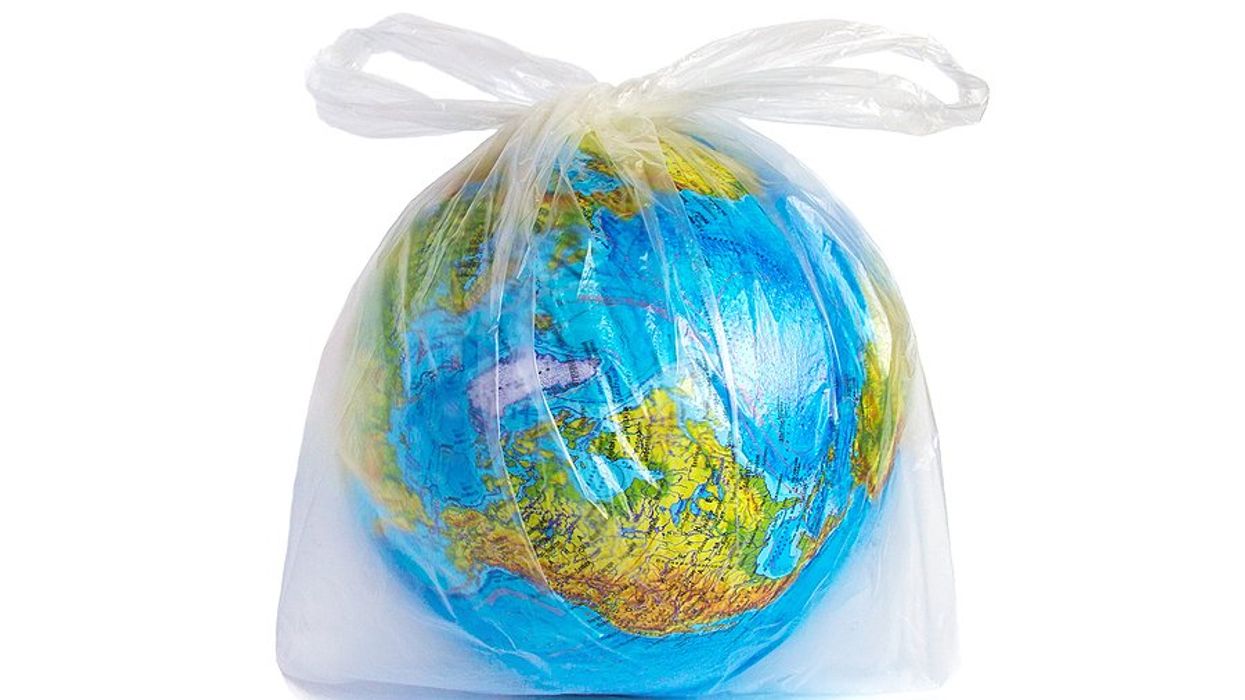
In an interview with CBC, environmental scientist Pete Myers advocates for a significant reduction in plastic production and emphasizes the urgent need to address plastic pollution's health impacts.
In short:
- Pete Myers, chief scientist at Environmental Health Sciences, highlights the toxic health impacts of plastics and stresses the need for urgent reductions in their production.
- Myers criticizes the notion of recycling as a solution, suggesting it distracts from more effective measures like limiting virgin plastic production while Nestlé and other corporations call for collaborative global rules with less emphasis on production caps.
- Canadian Environment Minister Steven Guilbeault acknowledges the need to eliminate the most harmful plastics but expresses hesitation about imposing a cap on all plastic production.
Key quote:
“We have the ability to use the science we have today, which we didn't have when plastic was invented. We know why some plastics are safe and some aren't. And let's use that information, that chemical information, to design safer materials.”
— Pete Myers, chief scientist at Environmental Health Sciences
Why this matters:
Plastic pollution has penetrated every corner of our planet, threatening ecosystems and human health. Read more: Exposure to chemicals in plastics linked to cancer diagnoses.
6 May 2024.
The Epoch Times promotes anti-climate ads across Europe – 
The Epoch Times, a pro-Trump publication, has been accused of spreading anti-climate misinformation through hundreds of ads across Europe, leading to concerns about stoking climate skepticism.
Joey Grostern reports for DeSmog.
In short:
- The Epoch Times has run 425 anti-climate ads on social media in Europe since January, with many targeting the role of CO2 in climate change.
- The publication has faced scrutiny for misleading claims, resulting in several ads being flagged or removed by Meta platforms.
- Global Witness, a campaign group, has urged the UK Advertising Standards Agency to investigate and potentially ban these ads.
Key quote:
“After sowing division and disinformation in the U.S., everyone in the UK should be alarmed that the Epoch Times is using the same playbook here."
— Nienke Palstra, campaign strategy lead, Global Witness.
Why this matters:
Misinformation campaigns can hinder global efforts to combat climate change, influencing public perception and political agendas that impact environmental policy. Read more: Moving forward after four years of fights and falsehoods.
6 May 2024.
A new approach to rainwater management: Amsterdam's blue-green roofs – 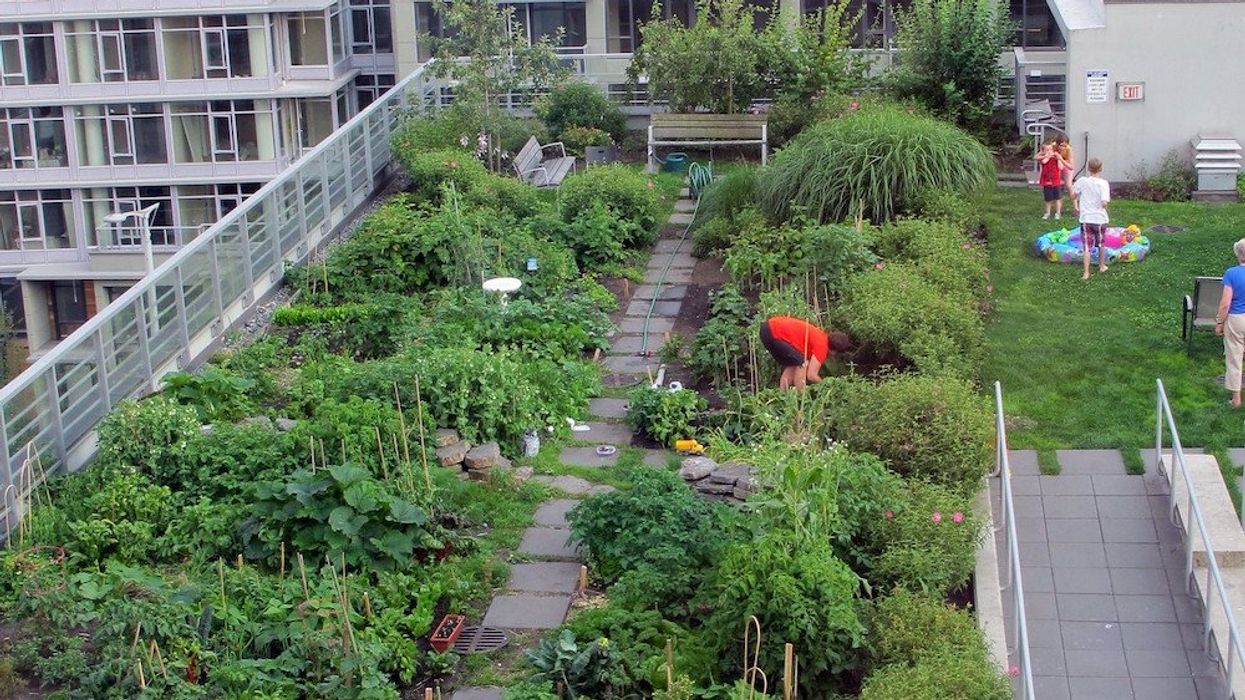
Amsterdam is leading a global trend in smart, climate-adaptive rooftops that capture rainwater to reduce flooding and provide water for residents.
In short:
- Amsterdam has more than 45,000 square meters of blue-green roofs, designed to capture and store rainwater for later use.
- The blue-green roofs have layers that collect water for building residents to use for watering plants and flushing toilets.
- The Resilio project, using specialized software, is modeling the impact of these roofs to help predict and manage flooding.
Key quote:
“Our philosophy in the end is not that on every roof, everything is possible, but that on every roof, something is possible.”
— Kasper Spaan, policy developer for climate adaptation at Waternet
Why this matters:
As climate change increases the frequency and intensity of storms, innovative water management solutions like blue-green roofs can significantly reduce flooding while providing sustainable water resources to urban communities. Read more: Embracing rainwater through green infrastructure.
6 May 2024.
Proposed pipeline project faces legal challenges over environmental risks – 
Environmental groups have filed a lawsuit against the Federal Energy Regulatory Commission (FERC) over its approval of a pipeline slated to supply methane gas to a new Tennessee Valley Authority (TVA) power plant in Middle Tennessee.
Anita Wadhwani reports for Tennessee Lookout.
In short:
- The Sierra Club and Appalachian Voices are challenging FERC's approval of the 32-mile pipeline, citing risks to communities and natural resources along the route.
- The controversial pipeline will supply methane gas to a TVA plant, one of several gas-powered plants TVA has proposed, despite environmental criticism.
- The pipeline's route will impact predominantly poor or Black communities, and environmentalists warn of higher energy costs and climate damage.
Key quote:
“FERC is supposed to safeguard the public interest, not rubberstamp unnecessary pipeline projects that will harm our communities, hurt the climate, and contribute to higher power bills.”
— Spencer Gall, senior attorney, Southern Environmental Law Center
Why this matters:
Environmental groups argue that such projects exacerbate climate change and lead to health and financial burdens for already vulnerable communities. Read more: Protesting oil and gas pipeline development harms mental health and creates distrust in government.
6 May 2024.
In Vietnam's bustling e-waste market, informal recyclers play a vital role – 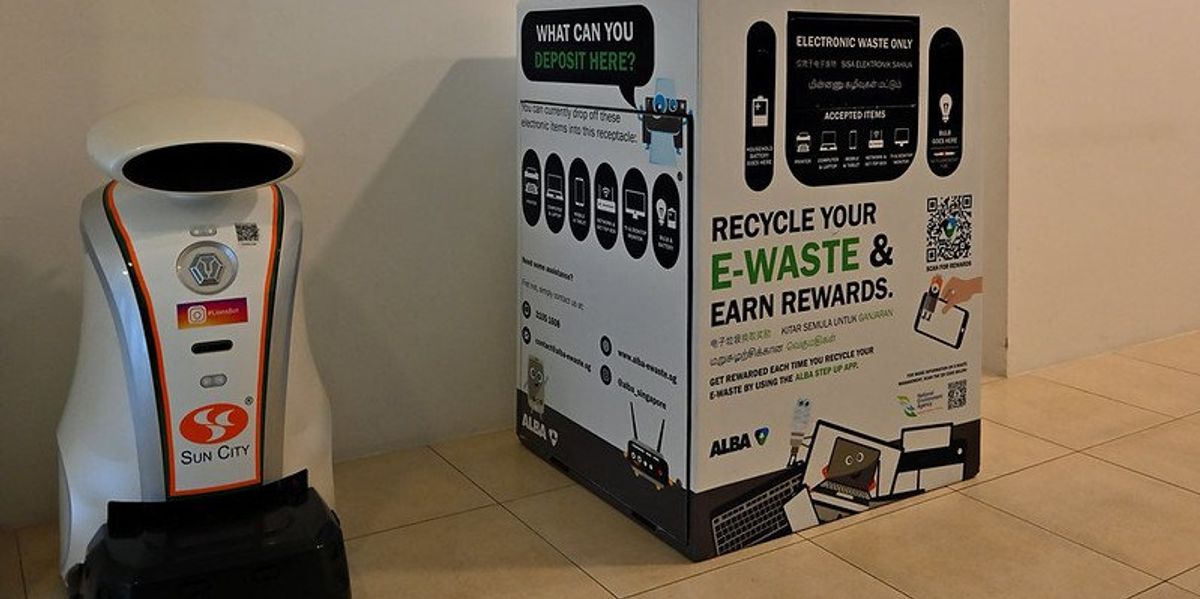
The informal recycling market in Vietnam's Ho Chi Minh City showcases how e-waste is managed, with workers salvaging what they can to mitigate environmental harm.
Aniruddha Ghosal and Jae C. Hong report for the Associated Press.
In short:
- E-waste is filling up landfills at an alarming rate, with Asian countries generating almost half of the 62 million metric tons produced globally in 2022.
- Despite rising e-waste, proper recycling systems are scarce, leaving informal workers to collect waste, exposing them to health hazards.
- Collaboration between informal and formal sectors is seen as a potential solution to improve efficiency and safety in e-waste management.
Key quote:
“We are currently generating e-waste at an unprecedented rate.”
— Garam Bel, e-waste officer at the U.N.’s International Telecommunication Union
Why this matters:
Managing e-waste is crucial for public health and environmental safety, and integrating informal recyclers into the formal sector could help optimize resource recovery while protecting workers from hazardous conditions. Read more: Electronic waste from just this year will outweigh the Great Wall of China.
6 May 2024.
Politicians in Belgium urged to strengthen low emission zones – 
The Mutualités Libres insurance group and other experts advocate for enhanced clean air measures to counteract the dangers of air pollution.
Gary Fuller reports for The Guardian.
In short:
- Mutualités Libres, a Belgian insurer, studied the impact of low emission zones (LEZs) on air pollution in Antwerp, Brussels, and Ghent.
- The research revealed that residents inside the LEZs experienced quicker improvements in air quality, particularly in reducing nitrogen dioxide, soot, and particle pollution.
- Despite progress, the insurer stresses the need for continued action, calling for expanded measures to protect public health and ensure cleaner air in cities.
Key quote:
"Policymakers should support and embrace initiatives like LEZs to improve air quality in cities. This is not the time to press a 'pause button' or turn back the clock."
— Dr. Luk Bruyneel, Mutualités Libres
Why this matters:
Cleaner air has tangible health benefits, and by enhancing LEZs and other initiatives, policymakers can significantly reduce the risk of heart and lung illnesses and promote healthier, more livable urban environments. Read more: Tiny particles of air pollution appear more deadly if from human-made sources.
6 May 2024.
Pipeline project impacts Indigenous sacred site, fueling legal battle – 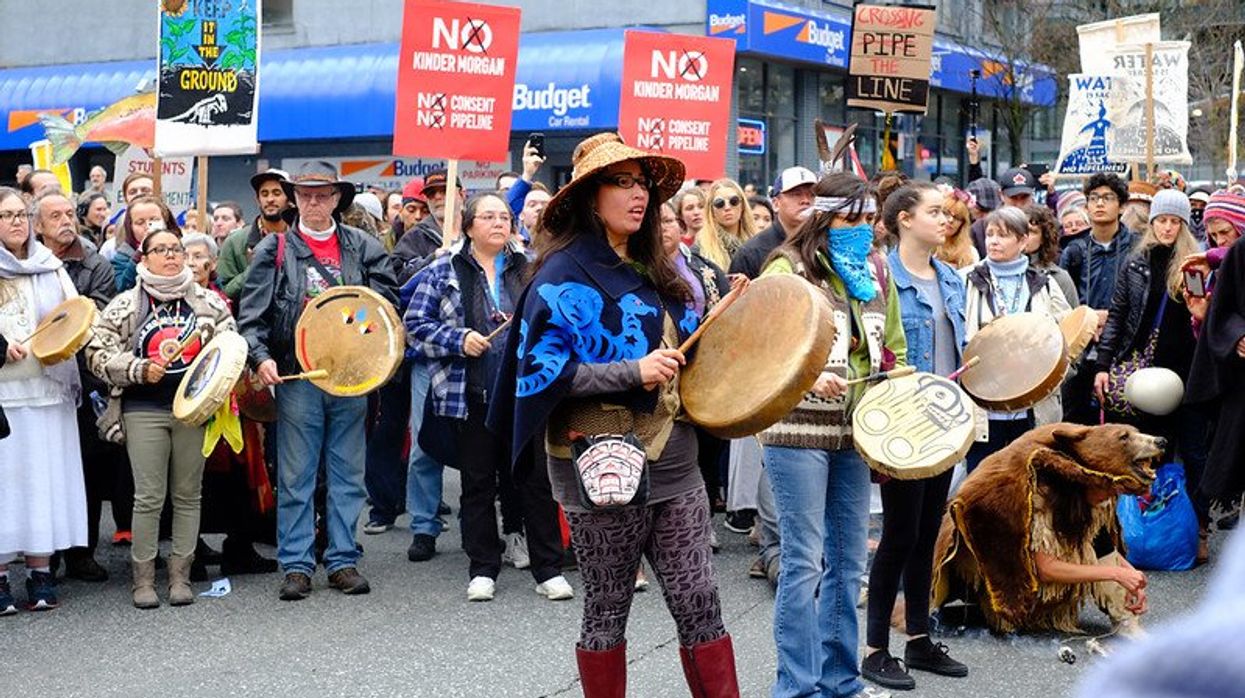
The Trans Mountain pipeline expansion project through British Columbia's sacred Pípsell region sparked opposition from the Stk’emlúpsemc te Secwépemc Nation over violation of Indigenous Rights and sacred spaces.
Ayesha Habib reports for The Narwhal.
In short:
- Despite previous agreements, the Stk’emlúpsemc te Secwépemc Nation claims the project violates Secwépemc law and infringes on Aboriginal Title.
- The nation argues the approval to trench through Pípsell bypasses proper consultation and disrupts cultural and spiritual practices.
- The case could set a precedent on Indigenous land rights versus industrial projects.
Key quote:
"They dug through the medicines. They made roads over it. They parked all their stuff on it."
— Mike McKenzie, Secwépemc Knowledge Keeper
Why this matters:
The Trans Mountain pipeline expansion highlights the tension between government and Indigenous land rights, potentially impacting future projects and influencing how nations protect their sacred spaces. Read more: Why Indigenous women are risking arrest to fight Enbridge’s Line 3 pipeline through Minnesota.
6 May 2024.
Heat conditions are worsening for fashion workers amid climate change – 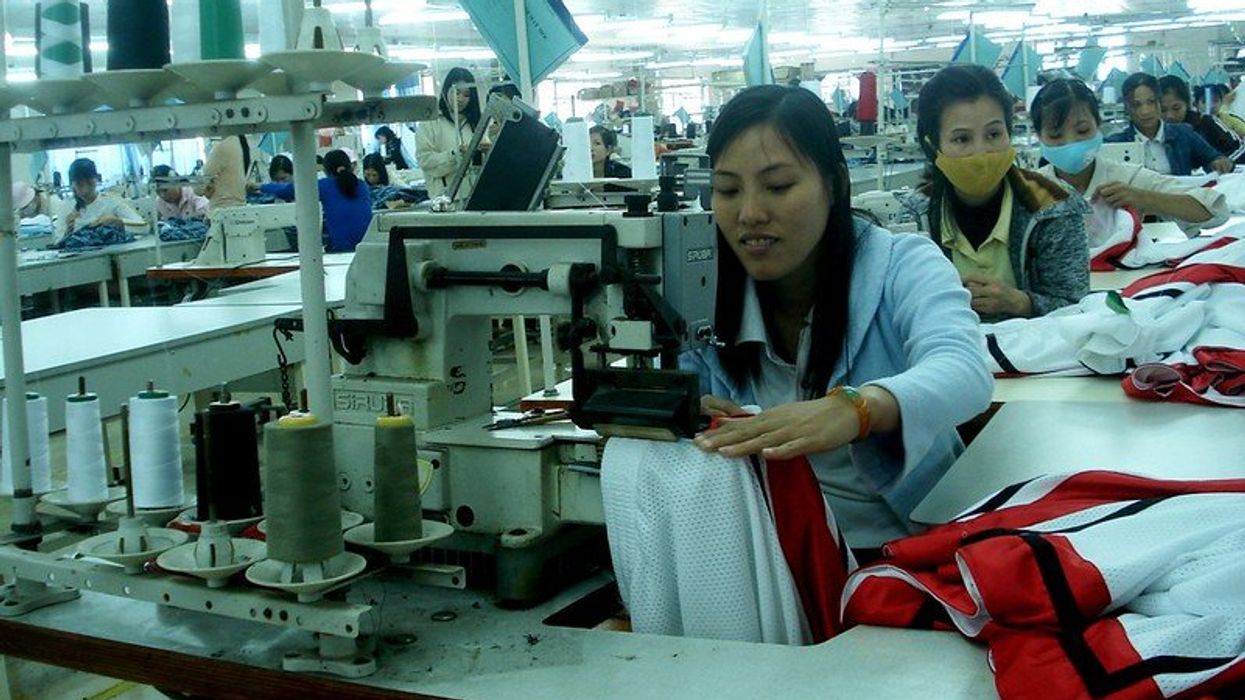
Extreme heat and flooding exacerbated by climate change are impacting the health and safety of garment workers in global fashion supply chains, with many already enduring tough working conditions.
Louise Donovan, Snigdha Poonam, and Albert Oppong-Ansah report for Grist.
In short:
- Workers in fashion's supply chain, especially women, are grappling with dangerous heat and flooding, made worse by climate change.
- Unsafe working conditions are prevalent, with inadequate ventilation, extreme temperatures, and often unclean water.
- Industry efforts have focused more on reducing environmental impact than on ensuring safe conditions for vulnerable workers.
Key quote:
"Workers are suffering from heat stress, from flooding, from water pollution … and we need to protect [them] from that as well."
— Liz Parker, Clean Clothes Campaign
Why this matters:
Advocates say fashion brands must do more to address the climate change-driven threats that endanger the health of workers who produce their garments. Providing safe working conditions not only safeguards these essential workers but also reinforces ethical practices across the global supply chain. Read more: Farmworkers’ vicious cycle of precarious employment, exploitation and climate change
6 May 2024.
Florida's wildlife corridor holds the key to mitigating climate change and development – 
A new study reveals that Florida’s Wildlife Corridor, if fully completed, will provide critical protection against climate change impacts while also balancing the state's rapid population growth.
Bill Kearney reports for South Florida Sun Sentinel.
In short:
- Florida's growing population and rising temperatures pose significant challenges, but the Wildlife Corridor could mitigate these impacts.
- The corridor can protect floodplains, which help absorb rainwater and reduce flooding from hurricanes and storms.
- Two growth plans, "sprawl" and "conservation," show that compact development can save more rural land, supporting the corridor's preservation.
Key quote:
“We need to have policies that integrate climate resilience into land-use planning. That includes local land-use planning of cluster development, and developing in areas that are of lesser environmental value and protecting areas that are of higher environmental value.”
— Meredith Budd, Live Wildly Foundation
Why this matters:
Completing the Florida Wildlife Corridor will safeguard the state's floodplains, support wildlife, and help Florida buffer against climate change while absorbing a growing population. Read more: Embracing rainwater through green infrastructure.
6 May 2024.
Compressed-air storage moves toward commercialization – 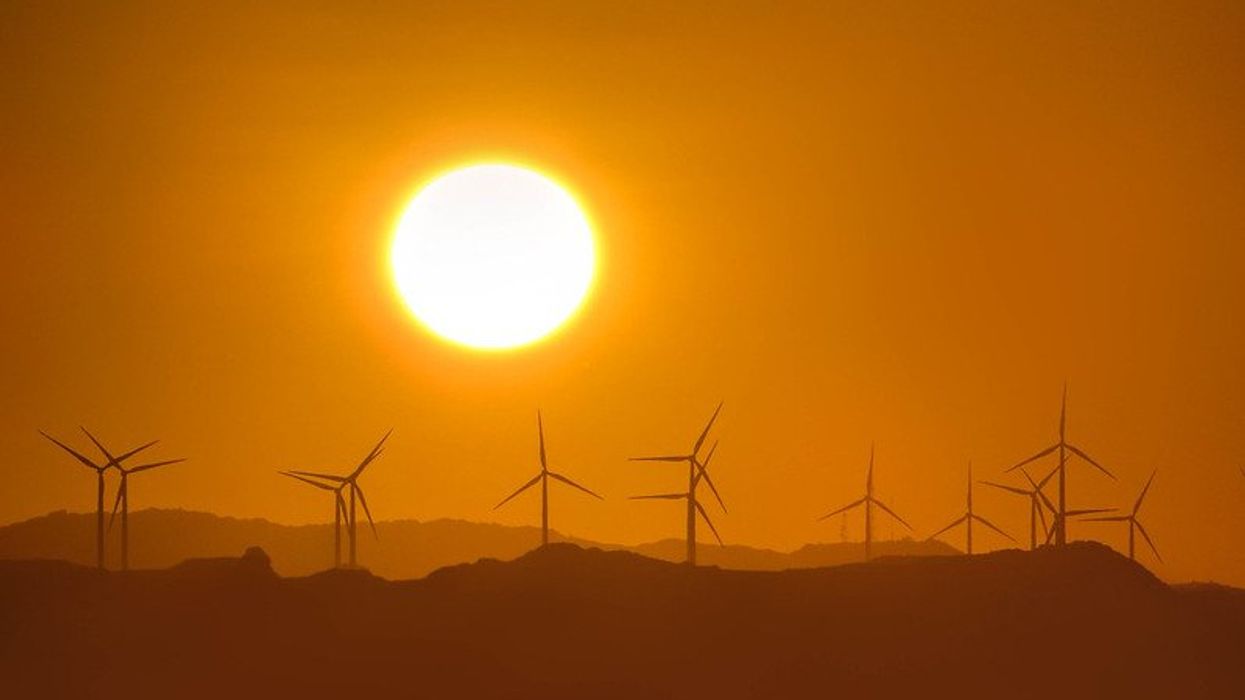
Hydrostor Inc., a leader in compressed-air energy storage, is preparing to build two major facilities as the need for long-duration energy storage intensifies.
Dan Gearino reports for Inside Climate News.
In short:
- Hydrostor’s first major project, Silver City Energy Storage Centre, will begin construction in Australia in late 2024, followed by Willow Rock Energy Storage Center in California.
- These facilities will help address the need for long-duration storage, critical for filling gaps when wind and solar power are insufficient.
- The Department of Energy recognizes the significance of long-duration storage for decarbonizing the energy grid, aiming to reduce costs by 90% within the decade.
Key quote:
“It’s a very simple system that just uses a hole in rock [plus] air and water.”
— Curtis VanWalleghem, CEO of Hydrostor Inc.
Why this matters:
Long-duration energy storage is the linchpin for a stable, renewable energy grid. Projects like Hydrostor's represent a significant step toward achieving ambitious climate goals by ensuring a reliable energy supply, particularly as reliance on wind and solar energy grows. Read more: Oil and gas production responsible for $77 billion in annual US health damages.
6 May 2024.
Stopping Shell Oil on South Africa’s Wild Coast – 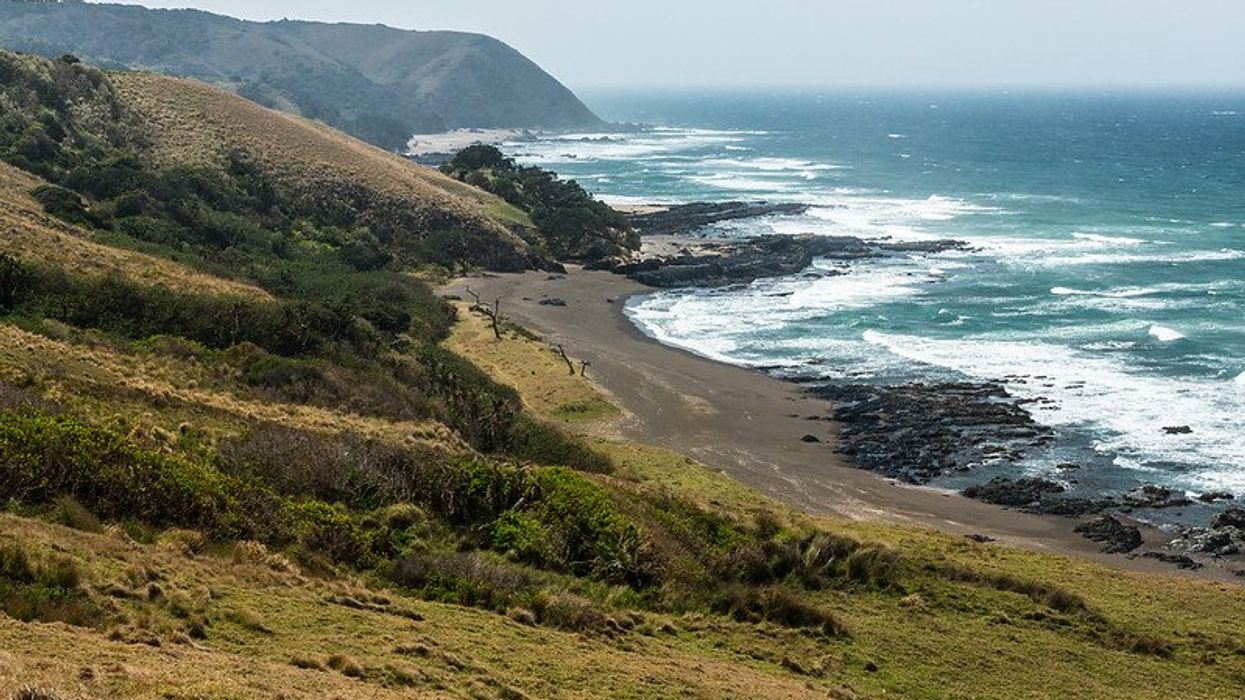
Nonhle Mbuthuma, a South African activist, has led her community in successfully challenging major mining and oil projects on their lands, despite ongoing personal threats.
In short:
- Mbuthuma’s Amadiba Crisis Committee has been instrumental in halting a titanium mine and a proposed seismic survey by Shell Oil on South Africa’s Wild Coast.
- The high court ruled that the government’s permit for Shell's seismic blasting was issued unlawfully, citing a lack of community consultation and consideration for local livelihoods.
- Mbuthuma and her community continue to fight against plans for a coastal highway, which they see as a gateway for mining and disruptive tourism.
Key quote:
“Shell is a big company with a lot of money, but we said that they are not bigger than our livelihoods and culture.”
— Nonhle Mbuthuma, Founder of the Amadiba Crisis Committee
Why this matters:
The fight against harmful development along the Wild Coast is emblematic of the broader struggle for environmental justice, where indigenous communities stand at the forefront of protecting biodiversity, cultural heritage, and their way of life. Read more: Climate colonialism at COP26.
3 May 2024.
Senators grill Haaland on Biden's energy strategy – 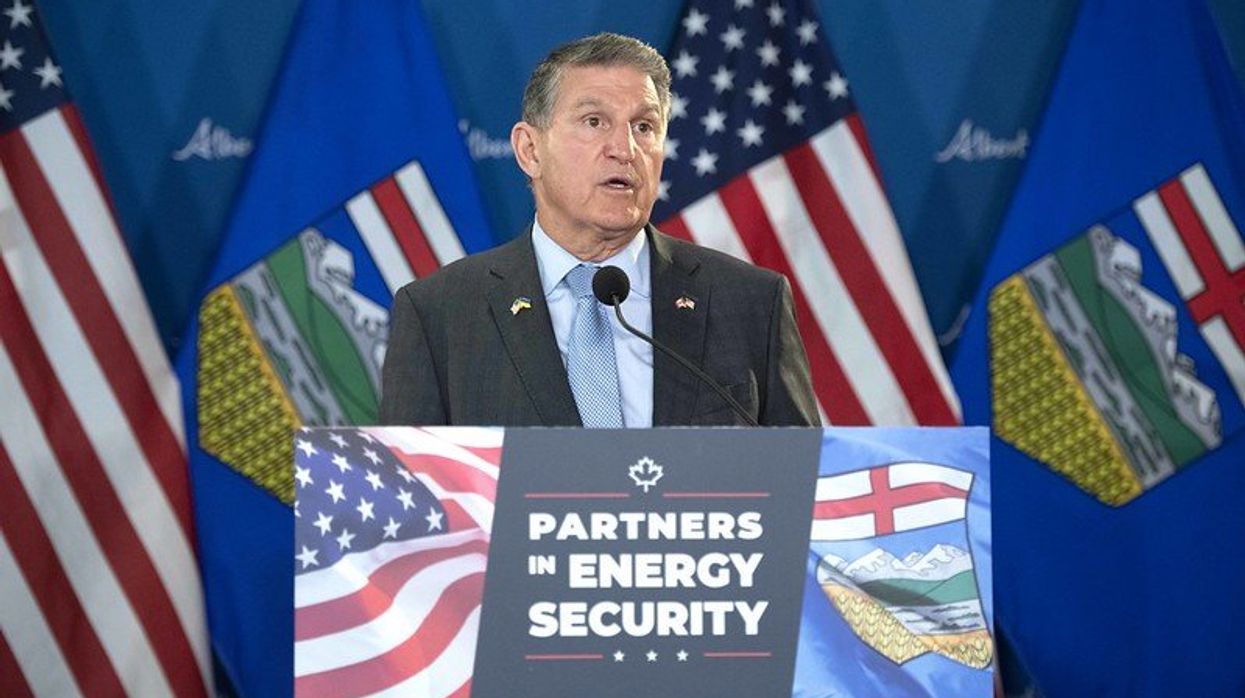
Interior Secretary Deb Haaland faced intense scrutiny from senators regarding the Biden administration’s energy policies during her appearance before the Senate Energy and Natural Resources Committee.
Michael Doyle reports for E&E News.
In short:
- Sen. Joe Manchin accused the Biden administration of prioritizing politics over long-term strategy and criticized Haaland for a lack of progress on energy-related decisions.
- Republicans, including Sen. Lisa Murkowski, denounced recent Interior decisions that limit Alaska’s development, specifically in oil, gas, and mining projects.
- Haaland defended her policies, stating she provides vision and direction while others detailed specific issues, like the Lava Ridge wind energy project.
Key quote:
"The radical climate advisers in the White House have put election-year politics ahead of a thoughtful and achievable long-term strategy for the country."
— Senator Joe Manchin.
Why this matters:
As the Biden administration aims to align energy policy with environmental goals, the scrutiny from senators signals a growing divide on energy and climate priorities and ongoing struggles to reduce greenhouse emissions. Read more: Natural gas vs. renewable energy — beware the latest gas industry talking points.
3 May 2024.
Tensions rise as US stance on plastic treaty draws criticism – 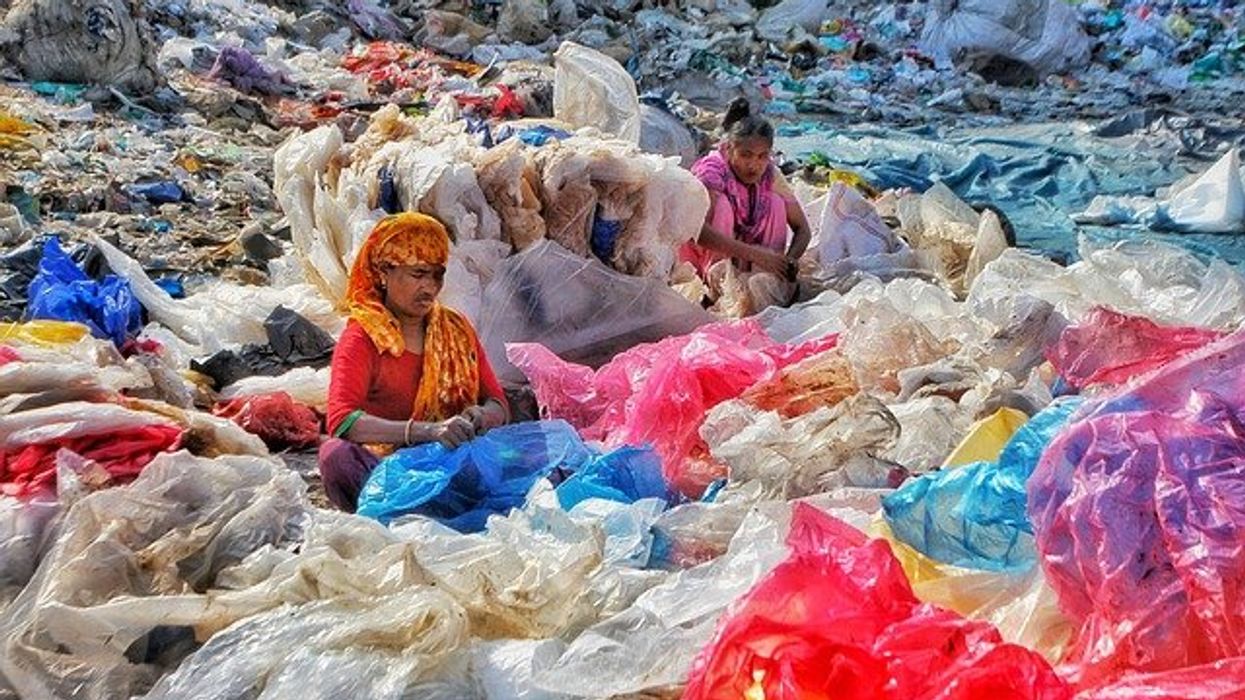
Recent U.N. talks in Ottawa reveal significant resistance by major oil producers, including the U.S., to stringent global plastic production caps.
James Bruggers reports for Inside Climate News.
In short:
- The U.N. negotiations aim to finalize a global treaty to end plastic pollution by year-end, but disagreements persist.
- Environmental groups criticize the U.S. for insufficiently addressing plastic production, rather than just consumption.
- U.N. officials express optimism, highlighting progress on treaty drafts and upcoming intersessional work before the next meeting.
Key quote:
"We leave Ottawa having achieved both goals and a clear path to landing an ambitious deal in Busan ahead of us. The work, however, is far from over."
— Inger Andersen, executive director of the U.N. Environment Program
Why this matters:
Plastic has become a symbol of environmental crises. It is estimated that millions of tons of plastic waste end up in the oceans annually, harming marine life and entering the human food chain through seafood consumption. The health implications are increasingly concerning, as studies suggest that microplastics might impact human health through unknown pathways.
3 May 2024.
Green policies and the rise of the far right in Europe – 
A new study reveals a growing backlash in Europe against green policies, which is driving voters toward far-right political parties.
Shannon Osaka reports for The Washington Post.
In short:
- Rising energy costs linked to green initiatives have increased support for far-right parties in Europe, such as the Netherlands and Germany.
- Restrictions on gas-powered vehicles and mandatory heat pump installations have sparked widespread protests and political shifts.
- These changes are perceived as unfairly burdening individuals rather than spreading costs across society and corporations.
Key quote:
"This has really expanded the coalition of the far right."
— Erik Voeten, professor of geopolitics at Georgetown University
Why this matters:
When people feel that changes are imposed on them without adequate consultation or consideration of their immediate concerns, there's a risk they will reject not just the specific policies but also the parties that promote them.
Far-right parties have capitalized on this discontent by framing green policies as elitist and disconnected from the common man's immediate economic concerns, promising to roll them back in favor of short-term economic relief.
Does the U.S. have its own far-right problem? Peter Dykstra argued last year that the Supreme Court has taken a brazen anti-regulatory turn. It’s our planet and health that will suffer.
3 May 2024.
Farmers' protests challenge EU's climate policies – 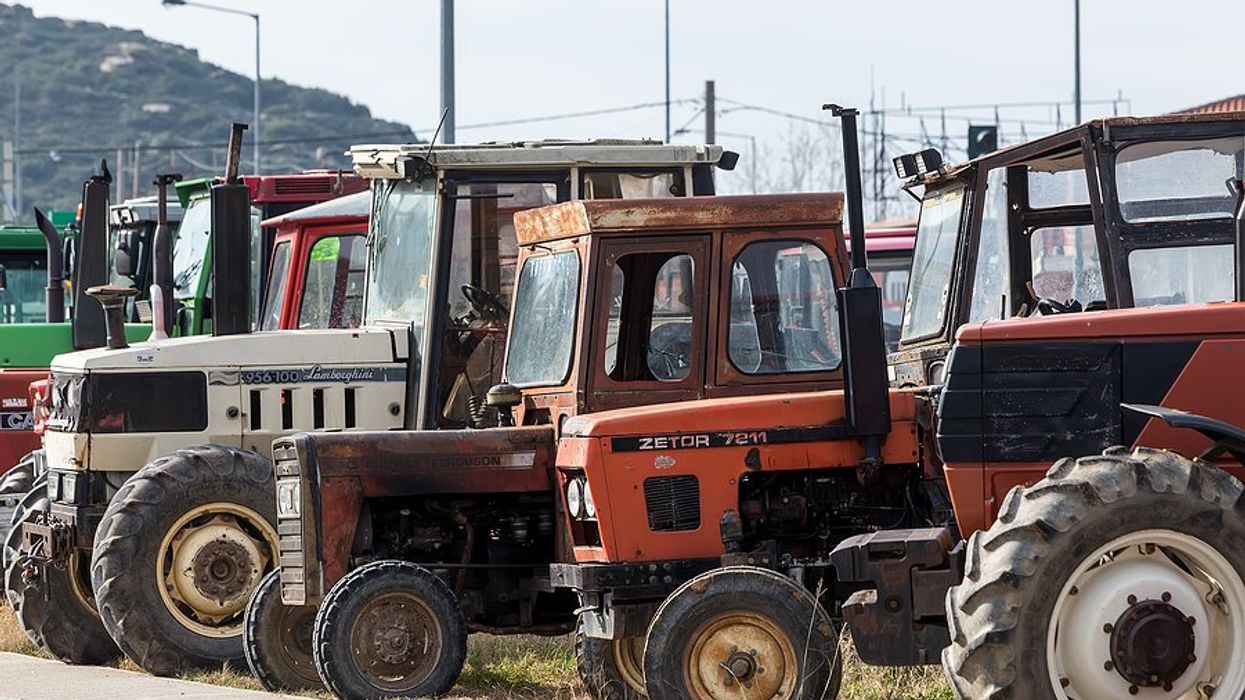
Protests by European farmers are intensifying, challenging the EU's efforts to implement sustainable agricultural reforms under its Green Deal.
Jan Dutkiewicz reports for Vox.
In short:
- European farmers are protesting against new environmental regulations, fearing loss of subsidies and increased governmental control.
- These protests have effectively stalled significant parts of the EU's Green Deal, particularly the Farm to Fork strategy aimed at reducing agricultural emissions and pesticide use.
- Amidst these tensions, the EU faces mounting pressure from both farmers and right-wing political factions, complicating the implementation of its climate agenda.
Key quote:
“Instead of being seen as heroic producers of a vital commodity, they are increasingly described as environmental villains and climate destroyers.”
— Alan Matthews, an Irish economist and expert on the CAP
Why this matters:
The EU's strategy involves a delicate balancing act: achieving environmental benefits while also ensuring that farmers receive adequate support and incentives. This includes financial aid, access to new technologies, and training to adapt to more sustainable farming methods.
Recent electoral successes of right-wing parties are expected to influence the European Union's political priorities and policy initiatives, with potential shifts toward more conservative positions on various environmental policies.
24 January 2024.
Amid LNG’s Gulf Coast expansion, community hopes to stand in its way – 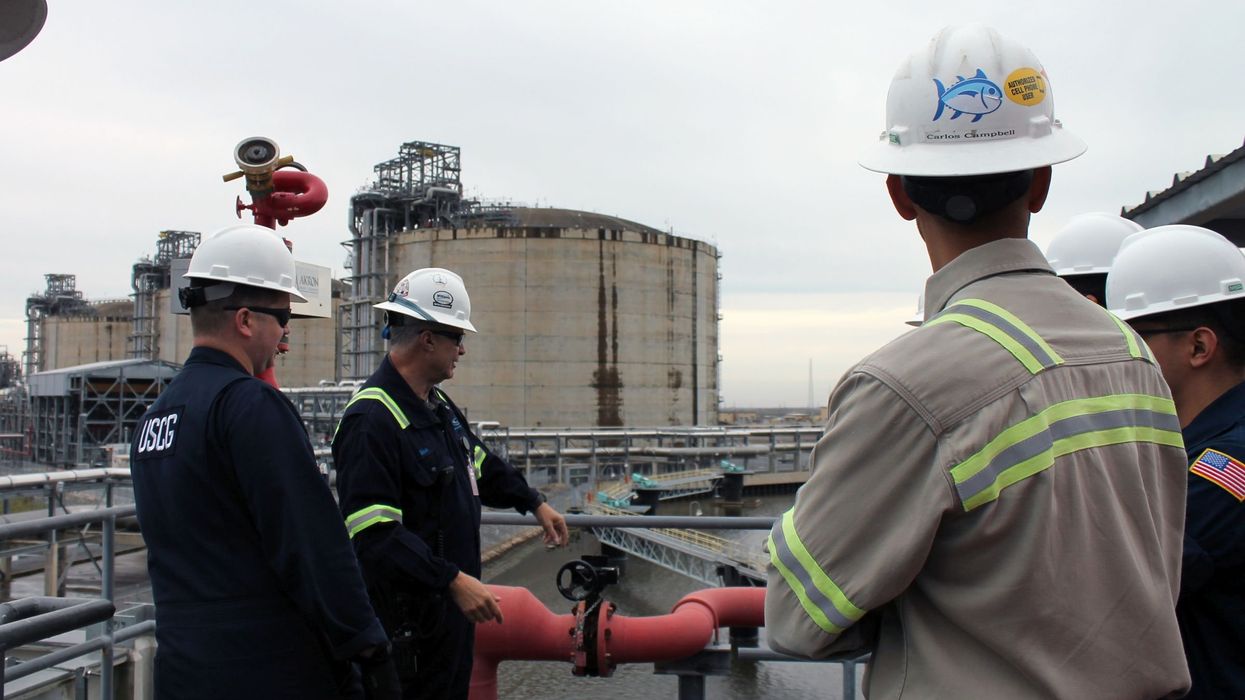
This 2-part series was co-produced by Environmental Health News and the journalism non-profit Economic Hardship Reporting Project. See part 1 here. Este ensayo también está disponible en español
CAMERON PARISH, La. — Late into the night, John Allaire watches the facility next to his home shoot 300-foot flares from stacks.
He lives within eyesight of southwest Louisiana’s salty shores, where, for decades, he’s witnessed nearly 200 feet of land between it and his property line disappear into the sea. Two-thirds of the land was rebuilt to aid the oil and gas industry’s LNG expansion. LNG — shorthand for liquified natural gas – is natural gas that's cooled to liquid form for easier storage or transport; it equates to 1/600th the volume of natural gas in a gaseous state. It’s used to generate electricity, or fuel stove tops and home heaters, and in industrial processes like manufacturing fertilizer.
In the U.S., at least 30 new LNG terminal facilities have been constructed or proposed since 2016, according to the Oil and Gas Watch project. Louisiana and Texas’ Gulf Coast, where five facilities are already operating, will host roughly two-thirds of the new LNG terminals – meaning at least 22 Gulf Coast LNG facilities are currently under construction, were recently approved to break ground or are under further regulatory review.
Although the U.S. didn’t ship LNG until 2016, when a freight tanker left, a few miles from where Cameron Parish’s LNG plants are today, last year the country became the global leader in LNG production and export volume, leapfrogging exporters like Qatar and Australia. The EIA’s most recent annual outlook estimated that between the current year and 2050, U.S. LNG exports will increase by 152%.
And it’s changed local economic estimates: last year, retired Louisiana State University professor Loren Scott’s economic forecast last year predicted an additional $36 billion in oil and gas industry spending will boost local employment by 7% over just two years.
Allaire, 68, watches how saltwater collects where rainwater once fed the area’s diminishing coastal wetlands. “We still come down here with the kids and set out the fishing rods. It's not as nice as it used to be,” he told Environmental Health News (EHN).
That intimacy with nature drew Allaire to the area when he purchased 311 acres in 1998. An environmental engineer and 30-year oil and gas industry veteran, he helped lead environmental assessments and manage clean-ups, and although retired, he still works part-time as an environmental consultant with major petroleum companies. With a lifetime of oil and gas industry expertise, he’s watched the industry's footprint spread across Louisiana and the Gulf of Mexico’s fragile shores and beyond. Now that the footprints are at the edge of his backyard, Allaire is among a cohort of organizers, residents and fisher-folk in the region mobilizing to stop LNG facility construction. For him, the industry’s expansion usurps the right-or-wrong ethics he carried across his consulting career. For anglers, oil and gas infrastructure has destroyed fishing grounds and prevented smaller vessels from accessing the seafood-rich waters of the Calcasieu River.
From the view of Allaire’s white pickup truck as he drives across his property to the ocean’s shore, he points to where a new LNG facility will replace marshlands. Commonwealth LNG intends to clear the land of trees and then backfill the remaining low-lying field.
“You see what’s happening with the environment,” Allaire said. “When the facts change, I got to change my mind about what we’re doing.”
Community bands together

During an Earth Day rally in April, community members gathered in the urban center of Lake Charles to demand local oil and gas industries help deliver a safer, healthier future for all. In between live acts by artists performing south Louisiana’s quintessential zydeco musical style, speakers like James Hiatt, a Calcasieu Parish native with ties to Cameron Parish and a Healthy Gulf organizer, and RISE St. James organizer Sharon Lavigne, who’s fighting against LNG development in rural Plaquemines Parish near the city of New Orleans, asked the nearly 100 in attendance to imagine a day in which the skyline isn’t dotted by oil and gas infrastructure.
Not long ago, it was hard to imagine an Earth Day rally in southwest Louisiana at all. For decades, the area has been decorated with fossil fuel infrastructure. Sunsets on some days are highlighted by the chemicals in the air; at night, thousands of facilities’ lights dot the dark sky.
“It takes a lot of balls for people to start speaking up,” Shreyas Vasudevan, a campaign researcher with the Louisiana Bucket Brigade, told EHN in the days after the rally. In a region with its history and economy intertwined with oil and gas production, “you can get a lot of social criticism – or ostracization, as well – even threats to your life.”
Many are involved in local, regional and national advocacy groups, including the Louisiana Bucket Brigade, Healthy Gulf, the Sierra Club, the Natural Resources Defense Council, the Turtle Island Restoration Network, the Center for Biological Diversity and the National Audubon Society.
“You see what’s happening with the environment,” Allaire said. “When the facts change, I got to change my mind about what we’re doing.” - John Allaire, environmental engineer and 30-year oil and gas industry veteran
But environmental organizers are fighting a multi-billion-dollar industry with federal and state winds at its back. And LNG’s federal support is coupled with existing state initiatives.
Under outgoing Louisiana Gov. John Bel Edwards — a term-limited Democrat — the state pledged a goal of reaching net-zero greenhouse emissions by 2050. Natural gas, which the LNG industry markets as a cleaner-burning alternative, is cited as one of the state’s solutions. Louisiana is the only state that produces a majority of its carbon emissions through fossil fuels refining industries, like LNG, rather than energy production or transportation. Governor Edwards’ office did not return EHN’s request for comment.
This accommodating attitude towards oil and gas industries has resulted in a workforce that’s trained to work in LNG refining facilities across much of the rural Gulf region, said Steven Miles, a lawyer at Baker Botts LLP and a fellow at the Baker Institute’s Center on Energy Studies. Simultaneously, anti-industrialization pushback is lacking. It’s good news for industries like LNG.
“The bad news,” Miles added. “[LNG facilities] are all being jammed in the same areas.”
One rallying cry for opponents is local health. The Environmental Integrity Project found that LNG export terminals emit chemicals like carbon monoxide –potentially deadly– and sulfur dioxide, of which the American Lung Association says long-term exposure can lead to heart disease, cancer, and damage to internal or female reproductive organs.
An analysis of emissions monitoring reports by the advocacy group the Louisiana Bucket Brigade found that Venture Global’s existing Calcasieu Pass facility had more than 2,000 permit violations.That includes exceeding the permit’s authorized air emissions limit to release nitrogen oxides, carbon monoxide, particulate matter and volatile organic compounds 286 out of its first 343 days of operation.
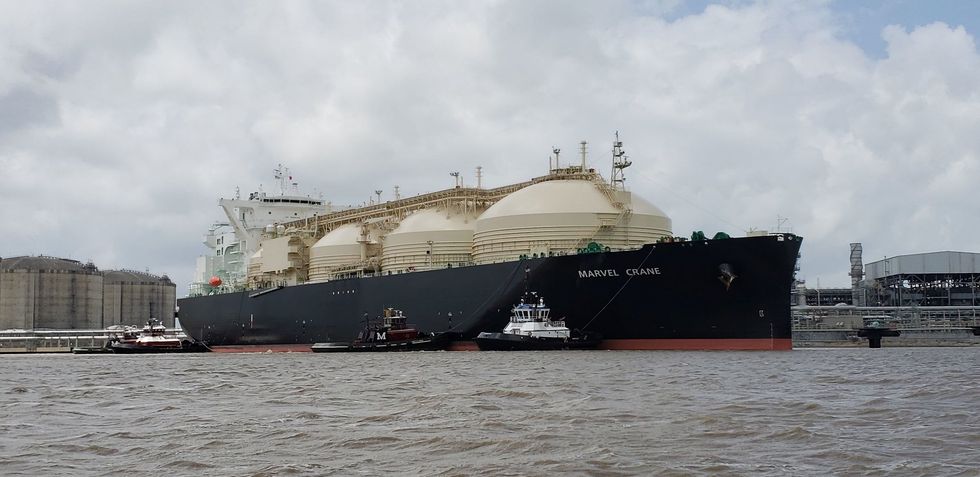
Rather than amend its infrastructure to meet regulatory standards, Venture Global is asking the state to raise its facility’s air emissions permit limits to release an additional 833% of greenhouses gasses each year, according to the Louisiana Bucket Brigade’s January report. If approved, permitted emissions would rise to roughly 4.65 million tons, making the facility the state’s fifth-largest emitter), according to a 2021 statewide greenhouse data inventory compiled by Louisiana State University’s Center for Energy Studies.
“This is just one facility,” at a time when three more facilities have been proposed in the region and state, Vasudevan said. Venture Global’s operational LNG facility — also known as Calcasieu Pass — “is much smaller than the other facility they’ve proposed.”
In an area that experienced 18 feet of storm surge during Hurricane Laura in 2020 — and just weeks later, struck by Hurricane Delta — Venture Global is planning to build a second export terminal Known as “CP2,” it’s the largest of the roughly two dozen proposed Gulf LNG export terminals, and a key focal point for the region’s local organizing effort.
Residents “don’t really want LNG as much as they want Cameron [Parish] from 1990 back,” Hiatt told EHN of locals’ nostalgia for a community before storms like Rita in 2005 brought up to 15 feet of storm surge, only for Laura to repeat the damage in 2020. Throughout that time, the parish’s population dipped from roughly 10,000 to 5,000. “But the wolf knocking at the door is LNG. Folks in Cameron think that's going to bring back community, bring back the schools, bring back this time before we had all these storms — when Cameron was pretty prosperous.”
“Clearly,” for the oil and gas industry, “the idea is to transform what was once the center of commercial fishing in Louisiana to gas exports,” Cindy Robertson, an environmental activist in southwest Louisiana, told EHN.
Helping fishers’ impacted by LNG is about “actual survival of this unique culture,” Cooke said.
In a measure of organizers’ success, she pointed to a recent permit hearing for Venture Global’s CP2 proposal. Regionally, it’s the only project that’s received an environmental permit, but not its export permit, which remains under federal review. At the meeting, some spoke on the company’s behalf. As an organizer, it was a moment of clarity, Cooke explained. Venture Global officials “had obviously done a lot of coaching and organizing and getting people together in Cameron to speak out on their behalf,” Cooke said. “So, in a way, that was bad. But in another way, it shows that we really had an impact.”
“It also shows that we have a lot to do,” Cooke added.
Environmental organizers like Alyssa Portaro describe a sense of fortitude among activists — she and her husband to the region’s nearby town of Vinton near the Texas-Louisiana border. Since the families’ relocation to their farm, Portaro has worked with Cameron Parish fisher-folk.
“I’ve not witnessed ‘community’ anywhere like there is in Louisiana,” Portaro told EHN. But a New Jersey native, she understands the toll environmental pollution has on low-income communities. “This environment, it’s so at risk — and it’s currently getting sacrificed to big industries.”
“People don’t know what we’d do without oil and gas. It comes at a big price,” she added.
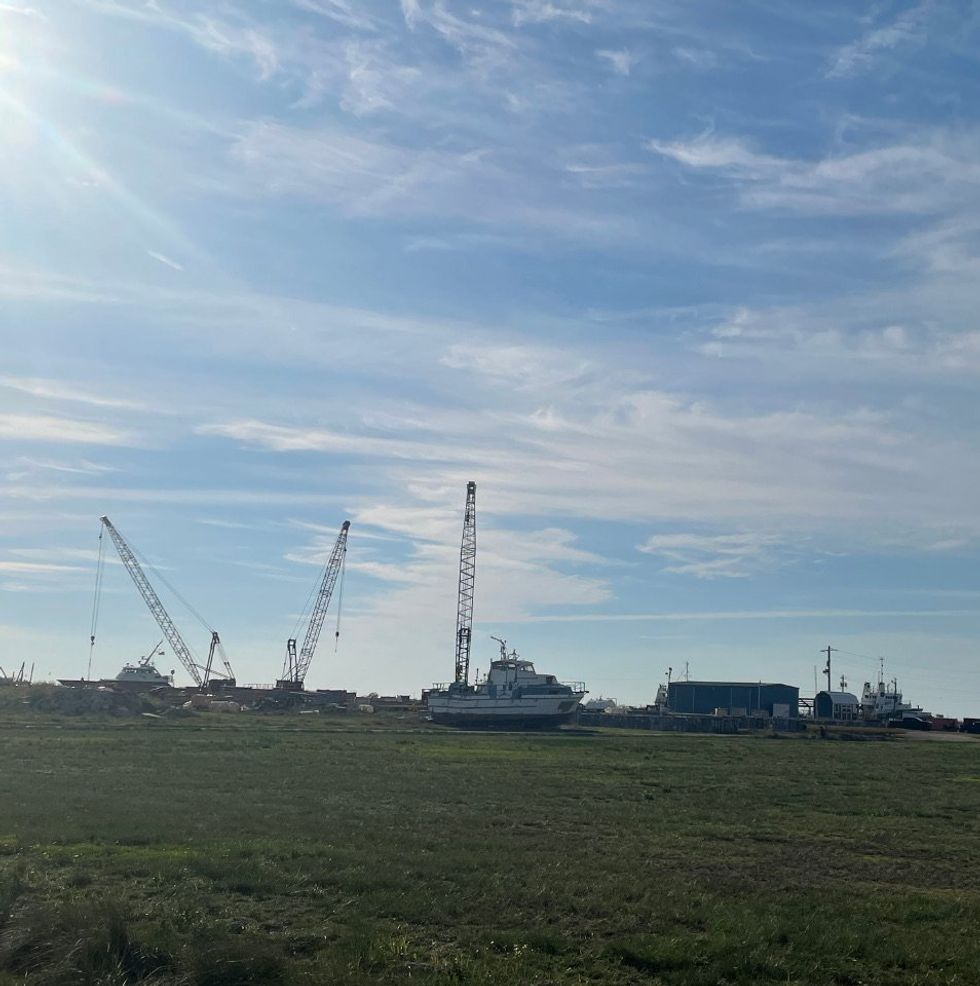

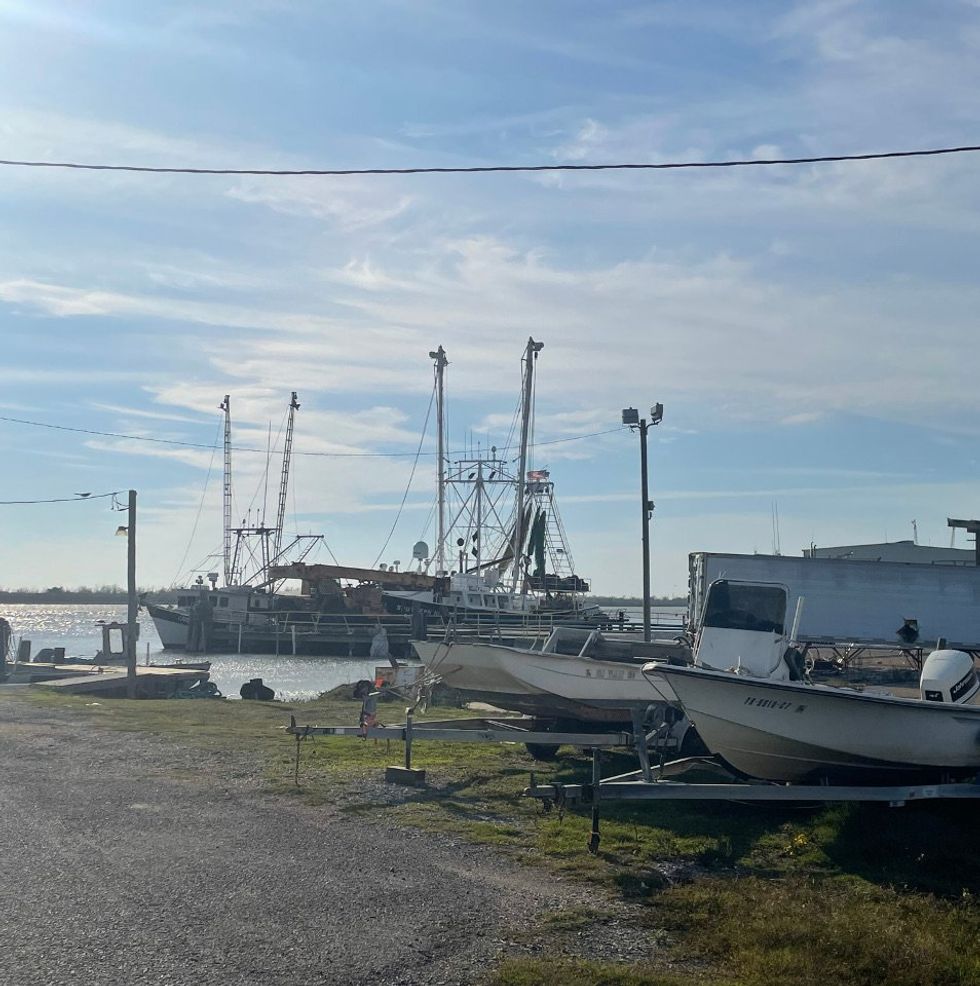
A disappearing parish
The stakes are seemingly higher for a region like southwest Louisiana, which is the epicenter of climate change impacts.
In nearly a century, the state has lost roughly 2,000 square miles of land to coastal erosion. In part driving the state’s erosion crisis is the compounding impacts of Mississippi River infrastructure and oil and gas industry activity, such as dredging canals for shipping purposes, according to a March study published in the journal Nature Sustainability. Louisiana’s Coastal Protection and Restoration Authority said Cameron Parish could lose more land than other coastal parishes over the next 50 years. A recent Climate Central report says the parish will be underwater within that time frame.
On top of erosion and sea level rise impacts, in August, 2023, marshland across southwest Louisiana’s Cameron Parish burned. The fires were among at least 600 across the Bayou State this year. Statewide, roughly 60,000 acres burned — a more than six-fold increase of the state’s average acres burned per year in the past decade alone.
But while the blaze avoided coastal Louisiana communities like Cameron Parish, the fires represented a warning coming from a growing chorus of locals across the region — one that’s echoes by the local commercial fishing population, who claimed to have experienced unusually low yields during the same time, according to a statement from a local environmental group. At the site of the Cameron Parish fires are locations for two proposed LNG expansion projects.
"The idea is to transform what was once the center of commercial fishing in Louisiana to gas exports.” - Cindy Robertson, an environmental activist in southwest Louisiana
It was an unusual occurrence for an area that’s more often itself underwater this time of year due to a storm surge from powerful storms. For LNG expansion’s local opposition, it was a red flag.
As the Louisiana Bucket Brigade has noted prior, the confluence of climate change’s raising of sea levels and the construction of LNG export terminals — some are proposed at the size of nearly 700 football fields — are wiping away the marshland folks like Allaire watched wither. Among their fears is that the future facilities won’t be able to withstand the power of another storm like Laura and its storm surge, which wiped away entire communities in 2020.
Amidst these regional climate impacts, LNG infrastructure has shown potential to exacerbate the accumulation of greenhouse gasses that cause global warming. For the most part, LNG is made up of methane — a greenhouse gas that’s more than 80 times more potent than carbon dioxide in the atmosphere. Among the 22 current LNG facility proposals, the advocacy group Sierra Club described a combined climate pollution output that would roughly equal to that of about 440 coal plants.
The climate impacts prompt some of the LNG industry’s uncertainty going forward. It isn’t clear if Asian countries, key importers of U.S. LNG, will “embrace these energy transition issues,” said David Dismuke, an energy consultant and the former executive director of Louisiana State University’s Center for Energy Studies. Likewise, European nations remain skeptical of embracing LNG as a future staple fuel source.
“They really don't want to have to pull the trigger,” Dismukes added, referring to Europe’s hesitation to commit more resources to exporting LNG from the American market. “They don't want to go down that road.”
While there will be a tapering down of natural gas supply, Miles explained, “we’re going to need natural gas for a long time,” as larger battery storage for renewables is still unavailable.
“I'm not one of these futurists that can tell you where we're going to be, but I just don't see everything being extreme,” Dismukes said. “I don't see what we've already built getting stranded and going away, either.”
For now, LNG seems here to stay. From 2012 to 2022,U.S. natural gas demand — the sum of both domestic consumption and gross exports — rose by a whopping 43%, reported the U.S. Energy Information Administration, or EIA. Meanwhile, in oil and gas hotbeds like Louisiana and Texas, natural gas demand grew by 116%.
Throughout 25 years, Allaire has witnessed southwest Louisiana’s land slowly fade, in part driven by the same industrial spread regionally. Near where the front door of his travel trailer sits underneath the aluminum awning, he points to a chenier ridge located near the end of the property. It’s disappearing, he said.
“See the sand washing over, in here?” Allaire says, as he points towards the stretches of his property. “This pond used to go down for a half mile. This is all that's left of it on this side.”
Read Part 1: LNG production comes with a price, Gulf Coast communities warn
Some funding for this reporting was also provided by the Wake Forest University Environmental and Epistemic Justice Initiative.
